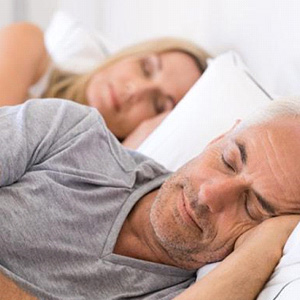Nighttime bruxism occurs when you clench or grind your teeth during sleep. Some studies estimated that almost 8% of adults grind their teeth at night. Occasional grinding may not be harmful but when it happens nightly, may be associated with moderate to severe dental damage, facial pain, and disturbed sleep. If you wake up with a sore jaw, head and neck pain or a morning headache, there is a chance you’re grinding your teeth during the night. In some patients, enlarged jaw muscles develop on the sides of the face from this nighttime grinding.
These muscles are ounce for ounce, the strongest in the body, and they can do a lot of damage like fracturing teeth. The unusual activity not only wears down teeth and strains the overworked muscles. The strong force can also damage the intricate jaw joints on one or both sides. Damage to the joints may lead to arthritic changes, chronic pain, and popping or clicking. Once these changes settle in, reversing their condition may become impossible. Click here to learn more about bruxism and sleep apnea from the Sleep Foundation!
Airway Screening
If you clench your teeth at night or wake up with jaw pain or muscle aches, you may want to call your doctor or dentist for an airway screening. During this screening, you will be asked about your daily stress levels, check your blood pressure, if you have a history of anxiety or depression, daytime fatigue, and excessive snoring. A physical exam of the mouth and soft tissue will be performed. All of these clues are symptoms of obstructive sleep apnea. When the throat muscles relax during the night, blocking the airway and interrupting breathing. Science is learning that people with undiagnosed sleep apnea have a higher risk of nighttime clenching and grinding. Nearly 20% of people with obstructive sleep apnea grind their teeth at night, and men are more likely to be affected. Why? They aren’t quite sure, but some research suggests that during an episode of sleep apnea, a stress response is issued, and your brain tells your jaw muscles to clench in an attempt to open the airway as an involuntary survival reflex to keep breathing. If you clench your teeth at night and suspect you have sleep apnea, take our sleep survey for other symptoms.
Treatment
Fortunately, treating obstructive sleep apnea, once diagnosed, helps alleviate nighttime teeth grinding. Lifestyle changes like quitting smoking, losing excess At Go To Sleep Center, we provide a quality & convenient solution for patients who suffer from snoring and sleep apnea by offering a dental device as a CPAP alternative. Contact Us to schedule your appointment today!

